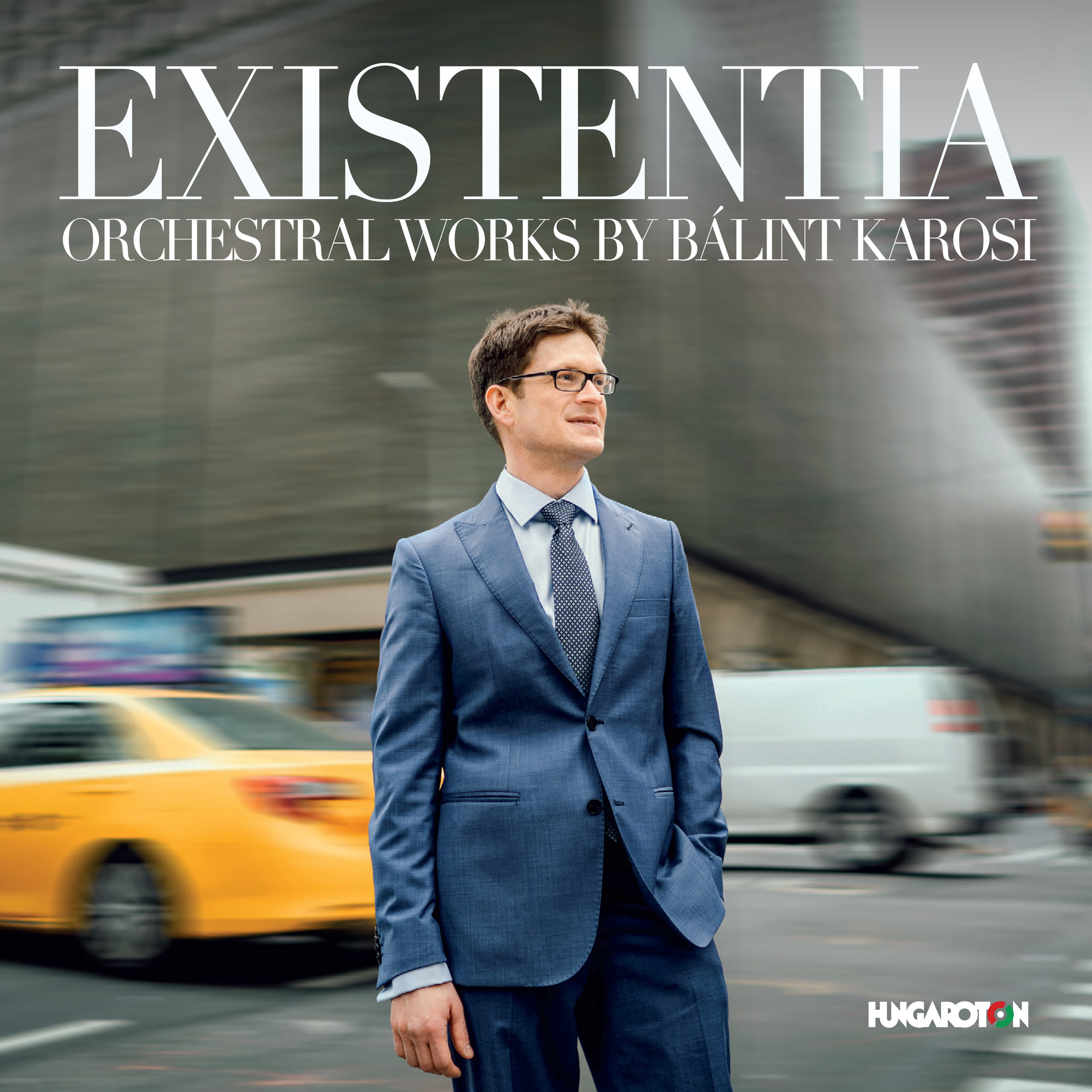Magyar Narancs: Existentia: Orchestral Works by Bálint Karosi
In the baroque era an organ player was a musical polyhistor: he played at worship events, conducted the church choir and the orchestra, taught, and composed. Their successors today are likewise multifaceted people: as cantor of Saint Peter’s Church in Manhattan Bálint Karosi was not inferior to his 17th-18th century predecessors.
On his new CD he establishes himself as composer: his 2nd concerto features an organ, percussions, and strings, and in the Triple concerto a dulcimer, a harp, and a guitar contribute to creating that individual world of tones, while his three-movement symphonic poem, Existentia draws inspiration from the poems of Sándor Weöres recasting into sounds whatever the composer thinks of existence and non-existence.
Karosi’s language is post-modern. He uses works of previous eras as raw material, or quotes them, and refers to Poulenc, Liszt, Bartók, Ligeti, Hungarian folk songs or – in the middle movement of the triple concerto – to oriental music through natural gestures. Equilibrium of dramatic or lyrical timbre, extraordinary richness of colour, and finally vision-like, and oftentimes illusionary atmosphere are important features of the works we now become acquainted with.
The recordings are excellent. The New York Spectrum Symphony is conducted by David A. Grunberg, Balázs Horváth conducts the Anima Musicae chamber orchestra, and the Boston Modern Orchestra Project is directed by Gil Rose; Charles Kiger (percussion instruments), Anasztázia Razvaljajeva (harp), Miklós Környei (guitar), and András Szalai (dulcimer), speak Karosi’s musical idiolect at the same native language standard, as the composer himself, who plays the organ part of the 2nd concerto.
In the finale of Existentia the soprano part is sung by Karosi’s mother Júlia Pászthy.
Kristóf Csengery
Source: Magyar Narancs

